HS-ESS3-4
Evaluate or refine a technological solution that reduces impacts of human activities on natural systems.
-
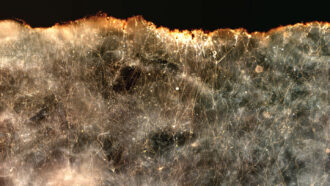 Environment
EnvironmentBacterial ‘living wires’ could help protect the seas and climate
Long, thin bacteria that conduct electricity may be able to help clean up oil spills and reduce emissions of methane, a powerful greenhouse gas.
By Nikk Ogasa -
 Climate
ClimateWarming temps could turn some blue lakes green or brown
Slightly warmer summers could cause thousands of blue lakes to become a murky green or brown, according to a tally of color in 85,000 lakes worldwide.
-
 Tech
TechNo trees were harmed to 3-D print this piece of wood
How clever! Scientists used print-speed adjustments to control how flat, 3-D printed shapes morph into complex wooden objects.
-
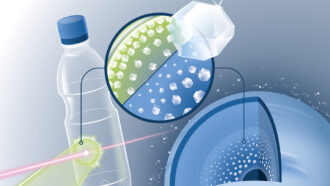 Materials Science
Materials ScienceLaser light transformed plastic into tiny diamonds
The technique could be used to make nanodiamonds for quantum devices and other technology.
-
 Plants
PlantsNo sun? No prob! A new process might soon grow plants in the dark
Teamwork makes green-work! Collaborating scientists came up with an electrifying farming trick that could make sunlight optional.
-
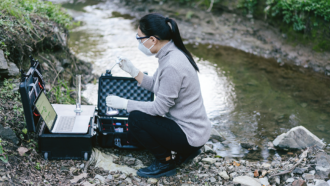 Chemistry
ChemistrySimple process destroys toxic and widespread ‘forever’ pollutants
Ultraviolet light, sulfite and iodide break down these PFAS molecules faster and more thoroughly than other methods.
By Nikk Ogasa and Janet Raloff -
 Climate
ClimateCoastal cities around the world are sinking, satellite data show
Of 99 coastal cities studied, nearly one-third are sinking. This leaves coastal communities increasingly vulnerable to rising seas.
-
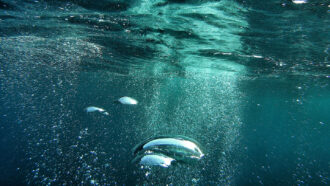 Environment
EnvironmentBubbles could help remove trash from rivers
One young engineer devised a way to make bubbles sweep away the trash floating down a creek, like the one in her backyard.
By Anna Gibbs -
 Health & Medicine
Health & MedicineYour bloodstream may be littered with the plastic you’ve eaten
For the first time, scientists have found plastic particles circulating in human blood. No one yet knows whether those polluting bits might pose a risk to health.
-
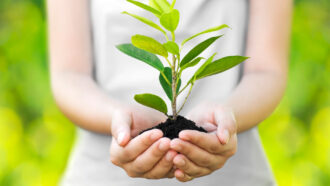 Chemistry
ChemistryLet’s learn about cellulose
The world’s most abundant natural polymer is finding all kinds of new uses, in everything from ice cream to construction.
-
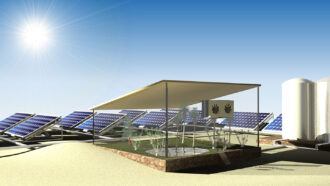 Tech
TechThis sun-powered system delivers energy as it pulls water from the air
The device not only produces electricity but also harvests water for drinking or crops. It could be especially useful in remote and dry parts of the world.
By Laura Allen -
 Climate
ClimateUN report calls for two-pronged approach to slow climate impacts
The latest IPCC climate change report underscores an urgent need for action to avoid the worst consequences of global warming.
By Nikk Ogasa